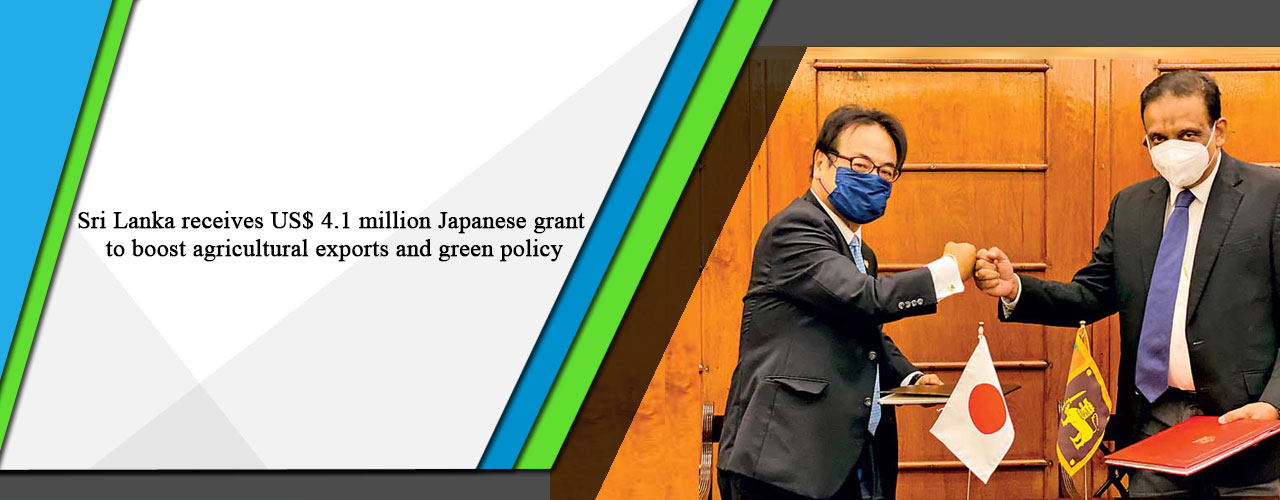Sri Lanka receives US$ 4.1 million Japanese grant to boost agricultural exports and green policy
Japan has reportedly granted US$ 4.1 million to the government of Sri Lanka to expand agricultural production and exports in order to help import safe agricultural products and organic fertilisers to Sri Lanka by enhancing the phytosanitary capacity of five Plant Quarantine Stations including the National Plant Quarantine Service (NPQS) and the country’s Bandaranaike International Airport (BIA).
An agreement to this effect was signed by Japanese Ambassador Mizukoshi Hideaki and Treasury Secretary S.R. Attygalle recently.
According to local media reports, Sri Lanka has a long history of exporting quality agricultural products including tea, rubber, coconut, spices, flowers, fresh fruits, vegetables, etc.
Japan had decided to provide modern Japanese equipment to contribute to the rapid detection of pests in agricultural products and expedite import and export clearance as part of its assistance to accelerate the post pandemic economic recovery of the country.
The series of equipment will enable Sri Lanka to meet phytosanitary requirements in high-end markets and increase the export of fresh fruits and vegetables such as mangoes, rambutans, papayas, pineapples, and curry leaves to Western countries, Japan, and other countries, local media reports stated.
A media statement released to announce the agreement noted that Japan believes that this assistance will contribute to improving farmers’ income and the acquisition of foreign currency with increased agricultural export earnings and facilitate the Green Agriculture Policy in Sri Lanka through the import of safe organic fertilisers while contributing to enhancing food security.
The equipment to be provided includes a plant x-ray scanner, DNA sequencing system, incubators, high-end microscope, and real-time PCR, which will be installed at the NPQS, a facility built in the 1990s by Japan’s grant assistance in Katunayake, and Plant Quarantine Stations at the BIA, Seaport in Colombo, Mahinda Rajapaksa International Airport, and Jaffna International Airport, the statement added.
OSL take:
The move to promote organic agriculture in the country and the increasing demand in Sri Lanka’s agriculture industry has opened up new business/investment opportunities in the industry. The continuously increasing demand has resulted in the need for the introduction of new agricultural practices and technologies required to uplift and develop the country’s agriculture industry. It has also opened up opportunities in the setting up of supplementary infrastructure facilities for the agriculture industry as well. Foreign businesses/investors could therefore confidently explore the growing business/investment opportunities in Sri Lanka’s growing agriculture industry.
| Article Code : | VBS/AT/22042022/Z_2 |

